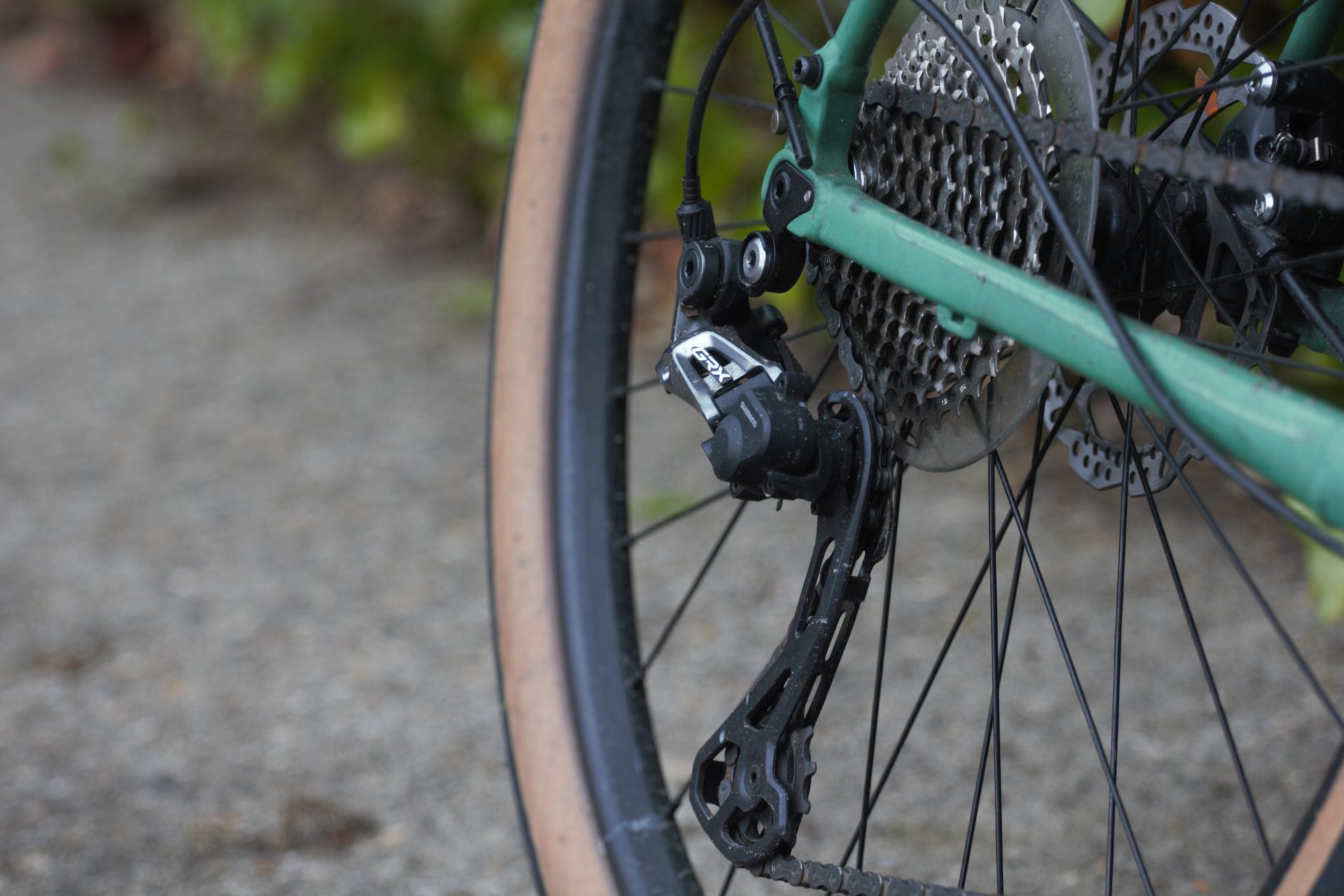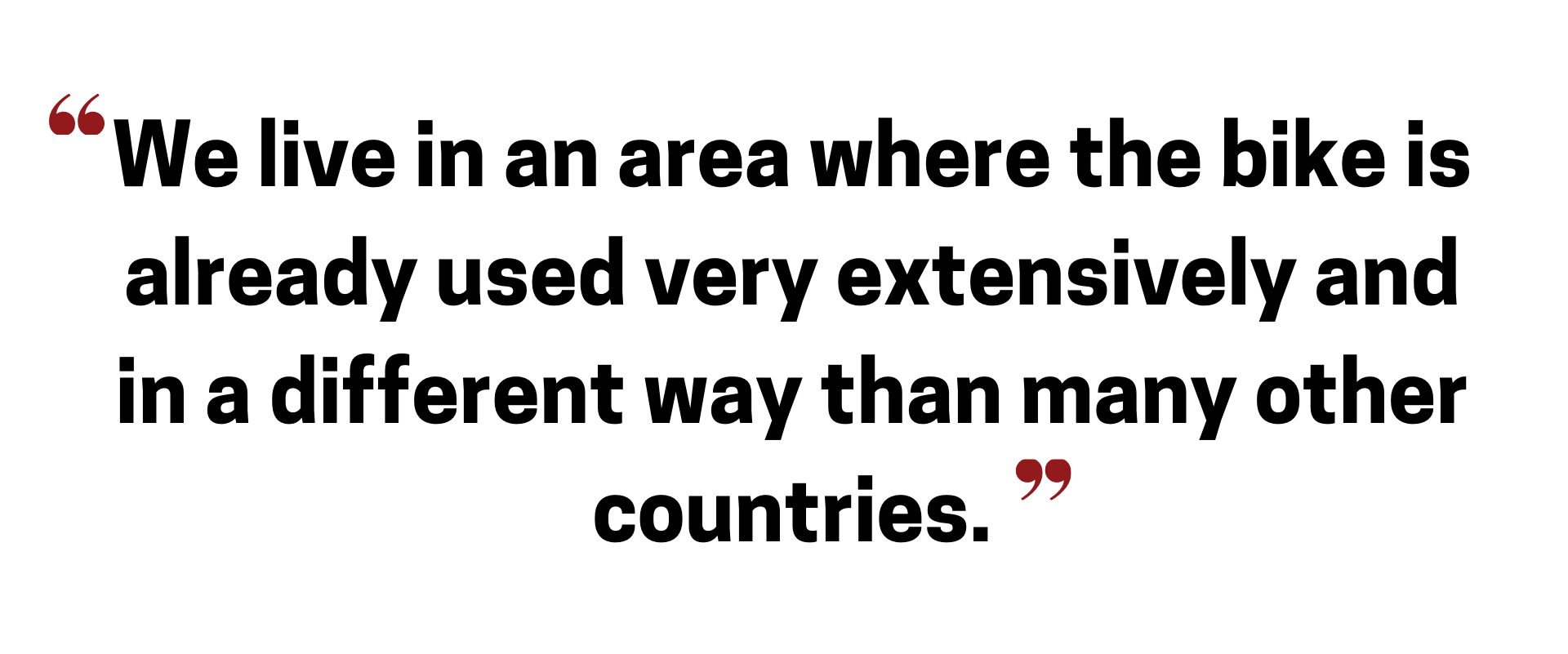Belgium loves bicycles. That much quickly becomes clear to any of the country’s visitors, but those who stay longer will find that the cycling culture is even a bit contagious. And if you’ve gotten enough into bikes to acquire your own, you’re probably familiar with the name Shimano.
Their parts make up around 70 to 80% of the global bicycle component market by value, meaning there are probably a few of them holding together your own.
Shimano has been manufacturing bike parts for a century now, and as Brussels invests in more cycling infrastructure and Flanders looks to catch up to the Netherlands in terms of how many people are choosing a bicycle for their go-to means of transportation, The Brussels Times sat down with some of their Benelux team to get their insights on cycling trends - both in Belgium, and beyond.
Here’s what they’re noticing.
Going Digital
“The way that bikes are going at the moment, yes, E-bikes are for sure a big trend, but more generally than that it's the electronification and digitisation of bicycles,” said Shimano’s Ben Hillsdon.
“As a manufacturing company, for just shy of 90 of those 100 years we were making mechanical products, and now for the last ten years we’ve been making digital products. That is going to be the future trend for sure, the digitisation of the bicycle and the electronification of the bicycle.”
While E-bikes are becoming increasingly popular, they’re only the tip of the iceberg when it comes to that digitisation.
“In a nutshell, your bicycle will be smarter than ever before,” said Hillsdon. “That may mean more digital operation of gears, which is just happening at the moment, or more electronification options.”
Designers are looking at ways to add power sources to bicycles that would allow riders to do things like charge their phone while they bike.
With the ability to stow a fully-charged (and charging) smart device between the handlebars, “the range of possibilities with electronics on bikes is opening up a very interesting new world.”
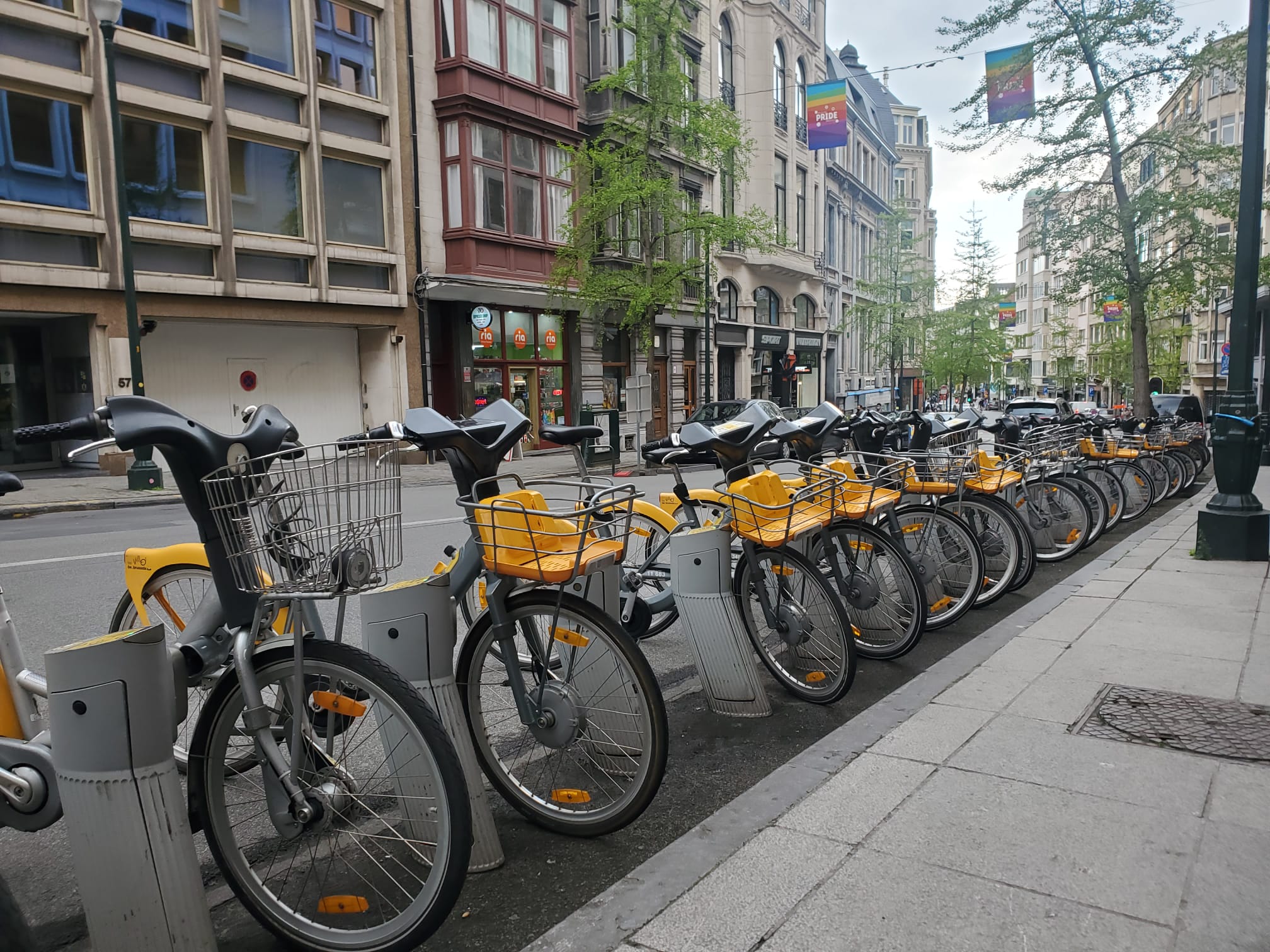
Photo by The Brussels Times
Leasing as the norm
But as innovations in cycling keep coming, bicycles are also getting more expensive - E-bikes in particular.
Newer models with all the bells and whistles can easily run upwards of €4,000, and that doesn’t factor in the cost of insuring something so valuable as your regular means of transportation.
In Belgium, the challenge of affordability is being met with a mix of public policy and private lending solutions.
“Something that is very clear in Belgian cycling is the success of bicycle leasing,” said Lennard Vis, Shimano’s Benelux marketing manager.
“Bicycle leasing has become increasingly popular in the last five years. At this moment, bicycle leasing companies have approximately 80,000 bicycles that are already in usage, and they’re looking to increase that number over the next few years.”
There’s an estimated 450,000 leased cars in Belgium, and leasing companies hope to replace part of that automobile fleet with leased bicycles.
Rather than having to come up with the cash up front in a bicycle shop, people can lease their bike much in the same way they would lease an automobile, making monthly payments towards the total purchase price and paying it off over the course of a couple years.
Company bicycles
Companies are eager to go greener (or at least, to be perceived as doing so), as evidenced by the increasing number of company cars that are electric being offered to employees of Belgian businesses. Some even intend to phase out cars with traditional engines altogether.
But what about a company bicycle?
“There are a lot of companies who already offer employees bicycle leases,” said Vis.
When a company-sponsored bike lease is combined with a commuter allowance for ditching the car, as is usually the case, cyclists often end up getting what’s essentially a free bike. Consider an incentive of a tax-free €0.24 per kilometre.
“If you commute 40 kilometres per day, you have a net allowance of about ten euros a day. Twenty-two working days a month is 220 euros, which pays the cost of the lease.”
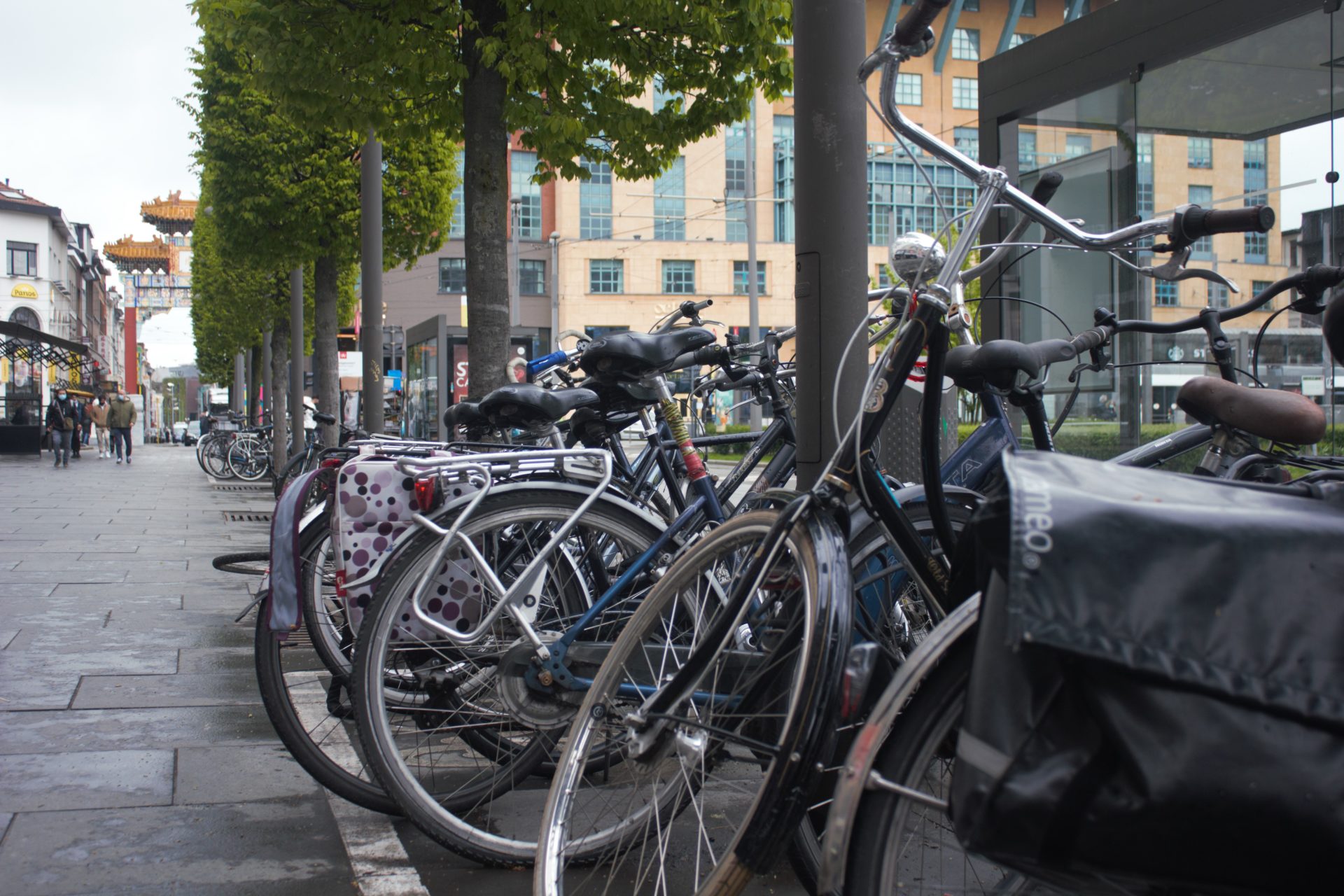
Photo by The Brussels Times
And €220 isn’t paying for some run-of-the-mill bicycle, either. A monthly payment like that can cover the costs of a slick new E-bike or even a cargo bike.
A survey found that around 28% of Belgians are interested in leasing a bicycle through their employer, and employers see the benefits.
“There are several big draws: it adds to the cyclists’ quality of life because they’re getting a workout at the start of the day and the end of the day. People who cycle to work are happier when they get home compared to those who travel by car,” said Vis.
“Another advantage is the impact it has on traffic jams,” Vis said, adding that while the current coronavirus pandemic has lessened that effect for now, prior to 2020, “being on the road in Belgium was not a happy time. A bicycle adds quality of life to the people using them.”
Cargo bikes in the commercial space
The cargo bike, or bakfiets, is becoming a popular choice for families looking to shuttle young children about, or make bigger grocery runs without a car.
A new initiative aimed at curbing air pollution in Brussels will allow residents to try out a cargo bike or electric longtail bike for free for two weeks, starting this month, in the hopes of capitalising on this growing trend.
But the usage of such bikes is also picking up steam in commercial spaces, where companies like Coolblue use them regularly to make more environmentally-friendly deliveries (about 80% of small items from the electronics chain are delivered by cargo bike now).
“There are multiple uses for E-cargo bikes,” said Vis. “There are local companies who put a coffee brewing machine on there and go sell their coffee in the park.”
Foodbikes instead of foodtrucks are already popping up in places, but as public policy shifts towards prioritising cyclists and pedestrians over cars, it’s possible we’ll be seeing all different types of commercial enterprises switching to cargo bikes - especially when those bikes can be electric, allowing for easy transport of even heavy materials.
“Some of the cities in Belgium, especially the big ones, have ‘Lage Emissie Zones’ (LEZ) or ‘Low Emission Zones’ in English. You can enter them by car, but only if your car has a recent engine with low emission (Euro 5 or Euro 6 for complete access). But because many people are not sure that their car can enter, they just avoid the area or take the bicycle, just to be sure and avoid penalty fees,’’ said Shimano’s Lieven Bisschop, who manages sales for the Benelux region.
“People who are, for instance, plumbers or craftsmen, they often have older means of transportation, like a camionette (van). They cannot get into the city, so they use a cargo bike to take their materials to the customer because it’s the only method of transport that's allowed, and it's relatively easy to park.”
Cities like Brussels have struggled to balance greenspace and parking options for cars, but lately they’re more inclined to prioritise the former over the latter.
“Parking is a second nuisance in many of the cities - it’s become extremely expensive, and if you have a large van, it’s not always easy to park it close to the customer,” said Bisschop.
The cargo bike is not only less expensive, less noisy and less polluting than a traditional tradesperson’s van, but it’s also much easier to park on a narrow Brussels street.
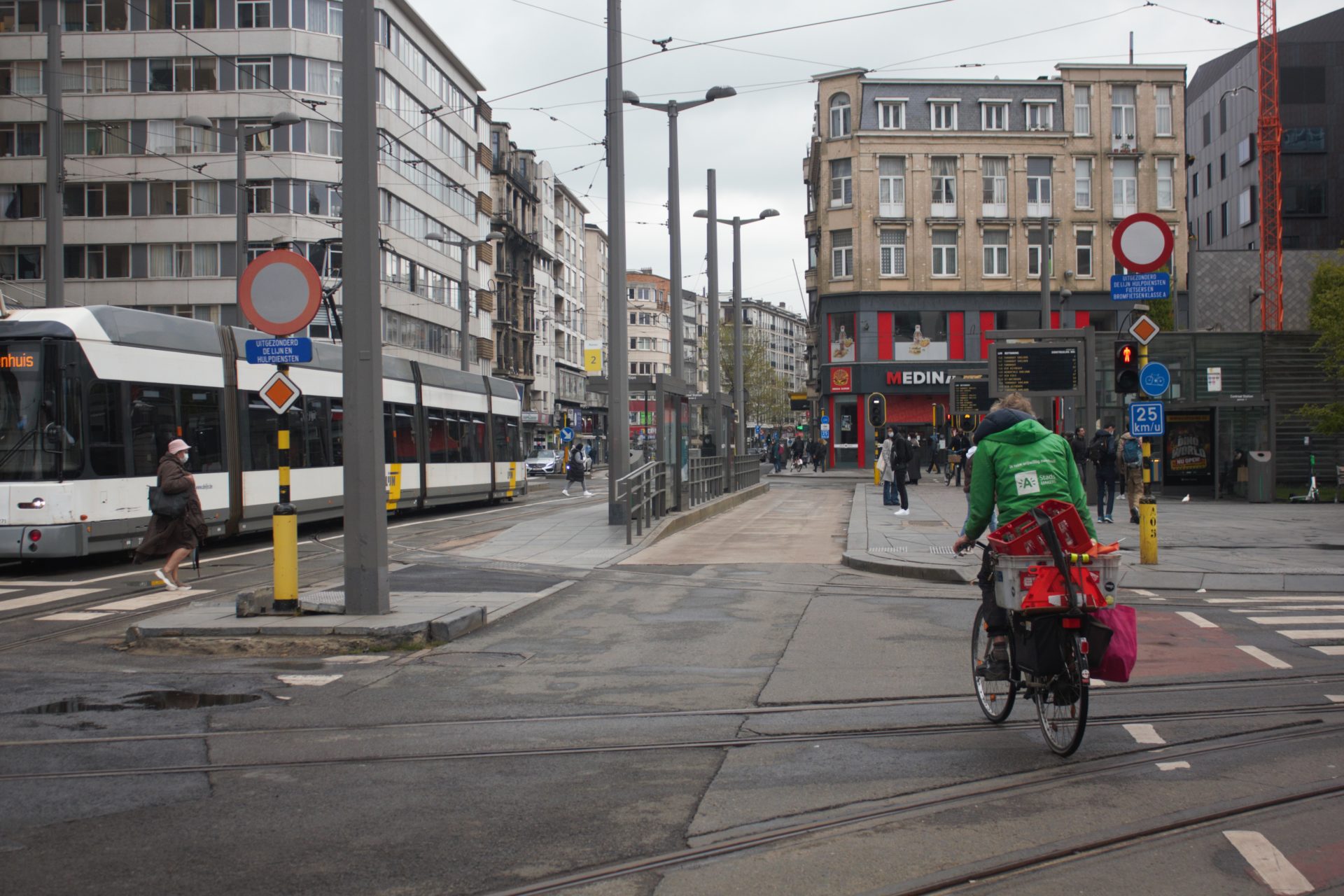
Photo by The Brussels Times
The bicycle’s social role
Even so, cycling isn’t always about getting to work or the grocery store.
“Where I live, between Ghent and Bruges, is a region where many elderly people use the bicycle as a means of recreation,” said Bisschop. “These people between the ages of 60 and 80 didn’t use the bicycle recreationally until a few years ago when the electric bikes came out, and now you see them everywhere.”
E-bikes all but eliminate the physical challenges of using a cycle as a means of transportation. Far less deadly in an accident than a car, they provide social opportunities to elderly people.
“These are people that are less mobile, and in other circumstances would maybe stay indoors, or be confined to maybe a bar or restaurant or bistro for an afternoon,” said Bisschop.
“Now, they use the bicycle to get around and see friends, and have some good social contact. The bike has a social role, much more than a transportation role.”
Still ahead of the game in Belgium
While Brussels, Flanders and Wallonia all work to promote cycling, Belgium is already leaps and bounds ahead of other parts of the world.
“We live in an area where the bike is already used very extensively and in a different way than many other countries,” said Vis. “We still have many steps to take in other countries, besides Belgium and the Netherlands.”
If the different regions of the country are successful with their cycling goals, you could be seeing still more bicycles on the streets of Belgium.
And assuming cycling culture is as contagious as it seems to be, with all the expats living just temporarily in the country and all the innovations to come for the industry - which make riding a bicycle easier and more accessible than ever before - that effect may just even spread beyond.

